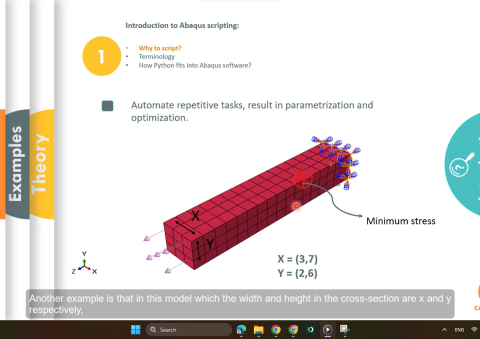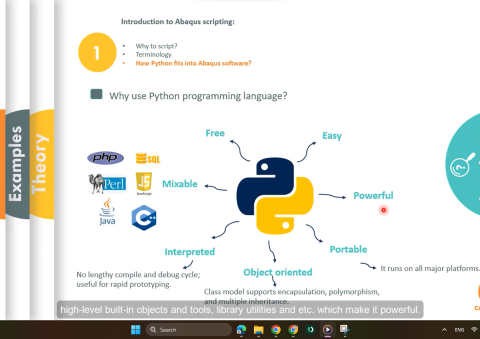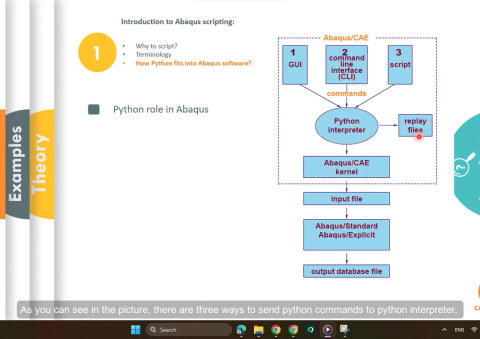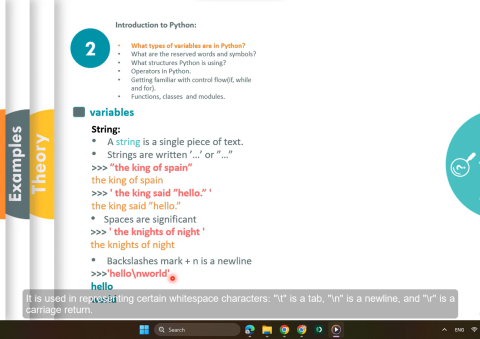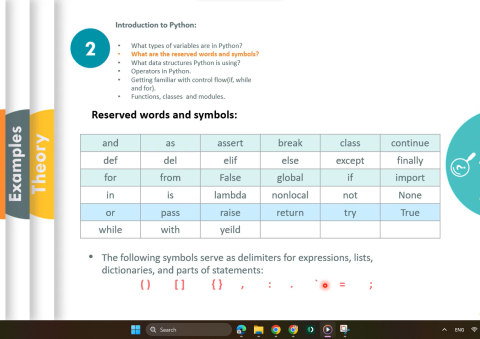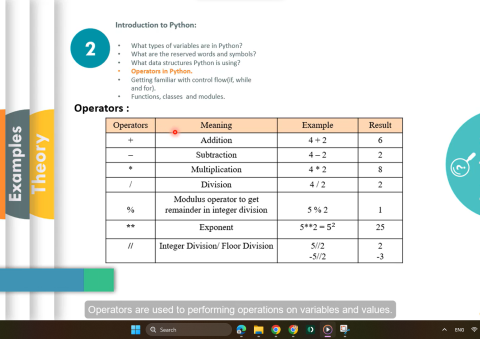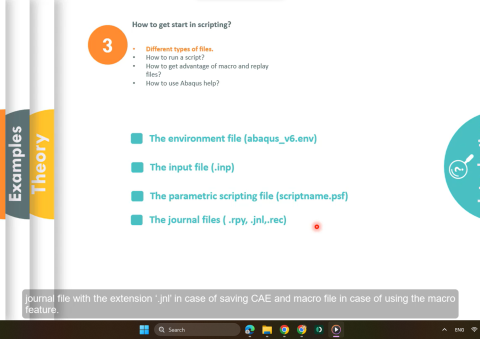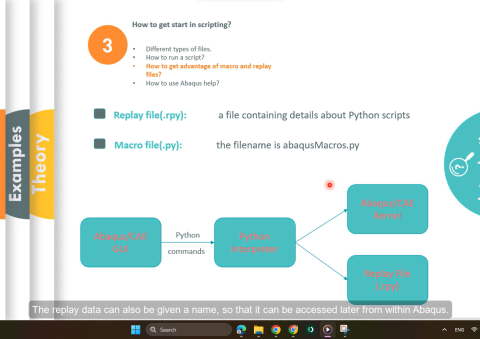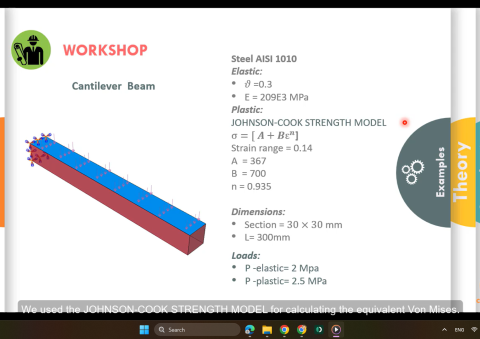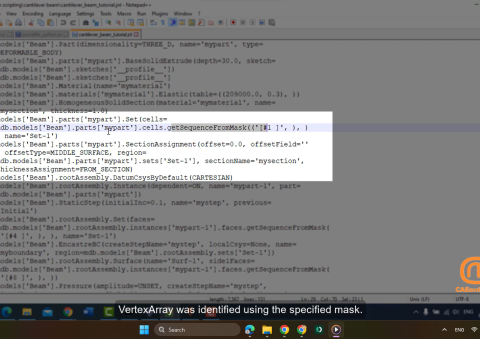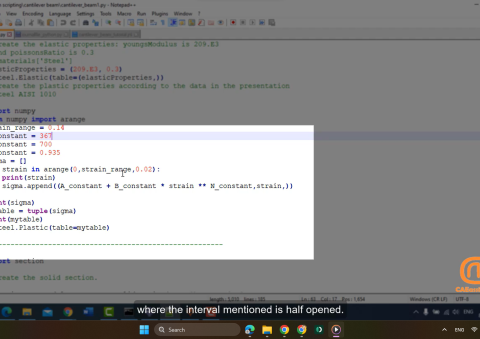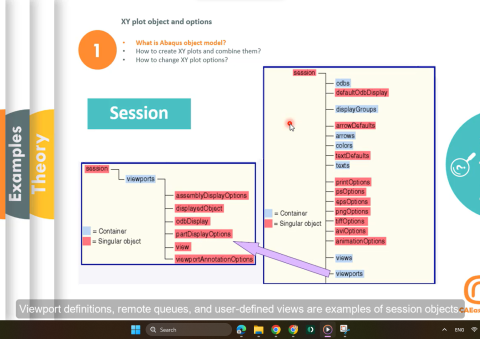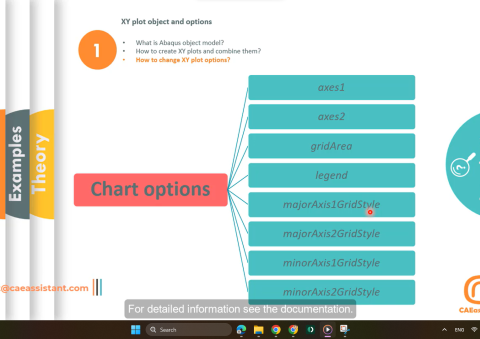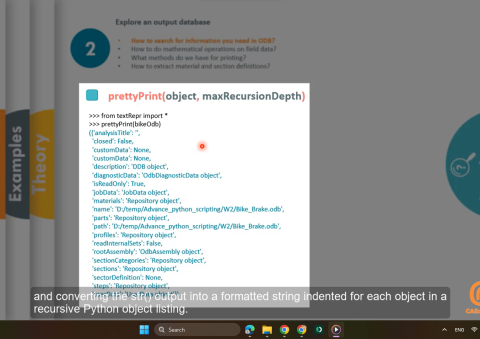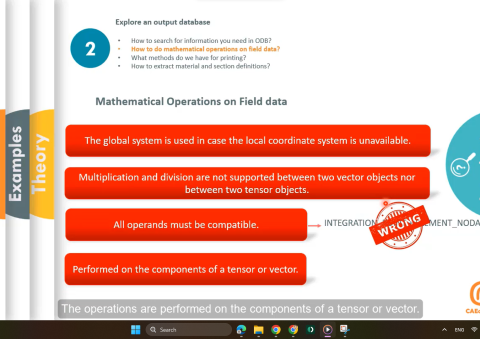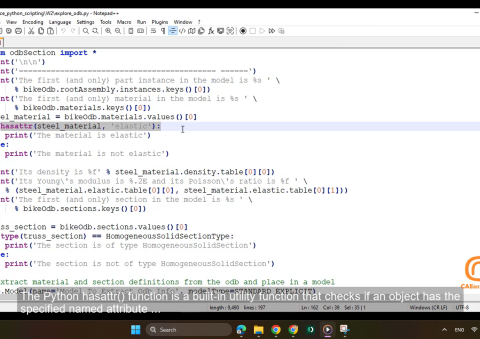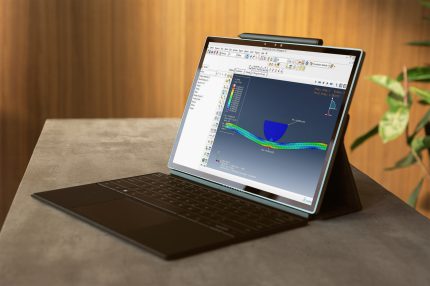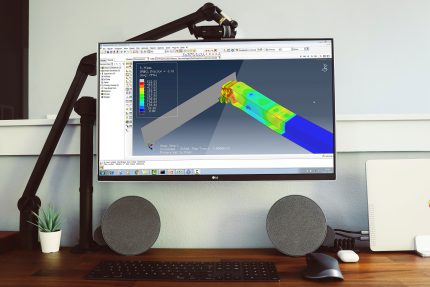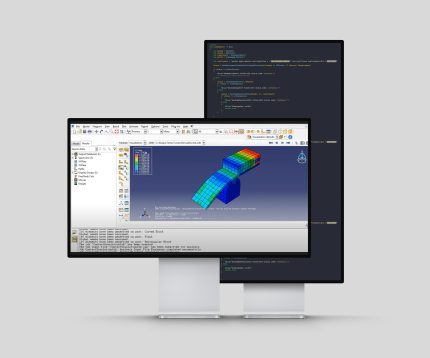Abaqus Python Course Overview (Economic Version)
The Abaqus Python Course is designed to empower engineers and researchers with the art of Python scripting for Abaqus. If you’re looking to streamline workflows, automate tasks, and unlock the full potential of Abaqus simulations, this course might be the perfect fit for you.
The course is well-structured, with modules dedicated to specific areas like MDB scripting and output handling. Each module includes video lectures, workshops, and potentially downloadable materials to solidify your learning. The workshops, focusing on practical applications like simulating a cantilever beam or a 3D truss, seem particularly valuable for solidifying the theoretical concepts.
*Notice that we also offer a full version of the course at a higher price, which includes advanced topics you will need for writing python scripts with Abaqus. This course covers all the topics listed in the curriculum below with a lock icon, including advanced topics for python scripting, including Running a number of jobs sequentially, Combining frames of output databases, Sending an email when job completes, Using Kernel and RSG plug-ins, Automatic simulation of Semi-Geodesic composite pressure vessel, Failure analysis of composite pressure vessel with UMAT Puck subroutine, and transferring load from CFD to structural model in Abaqus. You can view the full course through this link.
Composite Simulation Course Composite fem Course
Python FEM Course
By enrolling in this Python FEM course, you’ll learn:
Master Python Scripting Fundamentals: Abaqus Python Course
Gain a solid foundation in Python, including variables, data types, control flow, functions, and object-oriented programming.
Automate Complex Abaqus Workflows:
Effortlessly create and manipulate intricate Abaqus models using Python scripts.
Boost Efficiency and Innovation:
Automate repetitive tasks, design optimization studies, and parametric analyses to accelerate your workflow and explore design possibilities.
Perform In-Depth Analysis:
Extract and analyze critical simulation data with precision using Python libraries and scripting techniques.
Python for Mechanical Engineers
MDB with Abaqus Python Course
Lesson 1-1- Introduction to Abaqus Python scripting
Lesson 1-2- Python language programming
Lesson 1-3- Starting of scripting
Workshop 1-1- simulation of a cantilever beam (Abaqus python)
Workshop 1-2- Running a number of jobs sequentiall
* (Only available in full package)
You can check the first workshop on YouTube Channel.
Outputs with Python Scripting in Abaqus
Lesson 2-1: Abaqus object model and XY plot options
Lesson 2-2: Explore an output database
Lesson 2-2: Combine frames of two output databases
Lesson 2-3: Monitor an analysis job and send an email when complete (Abaqus Python Course)
* (Only available in full package)
COMPOSITE PRESSURE VESSEL SIMULATION IN ABAQUS (GEODESIC WINDING) VIA PYTHON SCRIPTING
Lesson 4-1: Semi-Geodesic filament winding
Workshop 4-1: Simulation automatically Semi-Geodesic composite pressure vessel with Python script
Lesson 4-2: Puck failure criterion
Workshop 4-2: Failure analysis of composite pressure vessel with UMAT Puck subroutine
* (Only available in full package)
Script to transfer load from CFD to structural model in Abaqus
Lesson 5-1: Python script description (Python FEM)
Workshop 5-1: Script to transfer load from CFD to structural model in Abaqus
* (Only available in full package)
Our team of CAE Assistant instructors, renowned experts in their respective domains, will deliver each section of the course, providing you with unparalleled knowledge and insights.
Upon successful completion of this course, you will receive a course completion certificate. This certificate guarantees your skills with the amount of time spent, skills trained, and can be verified online.

Abaqus Python Course is perfect for:
If you are a researcher, student, university professor, or engineer working with Sequential or Advanced simulation, this training program is the perfect fit for you.
➤ Engineers and researchers seeking to enhance their Abaqus proficiency through scripting.
➤ Individuals with a basic understanding of Python FEM programming who want to apply their skills to finite element analysis.
➤ Professionals looking to automate workflows for AI or similar case studies and improve efficiency in their Abaqus simulations.
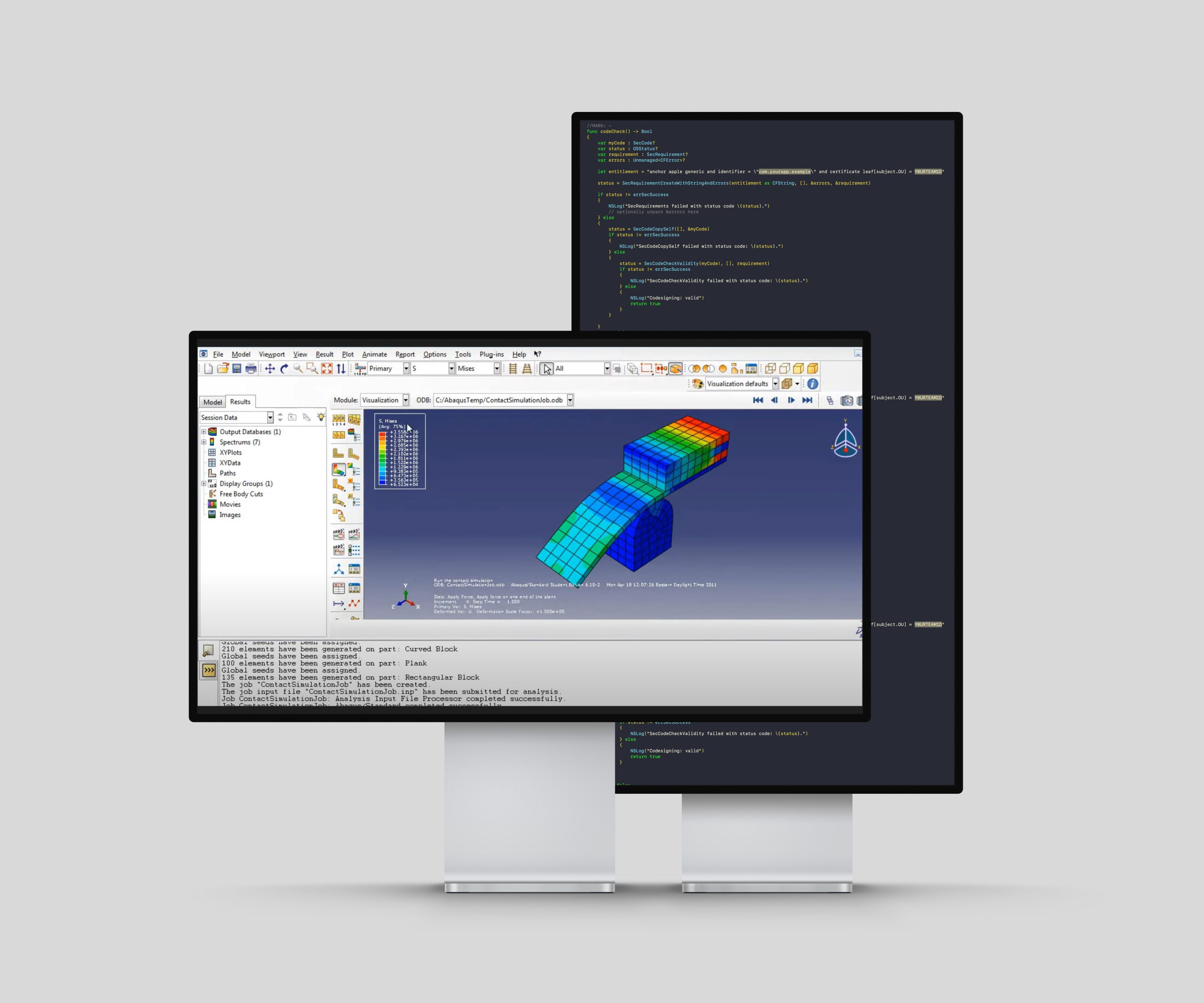
Why Choose CAE Assistant for Python Scripting Course
Frequency Asked Questions
This Abaqus Python course is designed for engineers, scientists, and analysts who want to learn or improve their skills in sequential simulating using Abaqus software.
A basic understanding of finite element analysis (FEA) concepts and some experience with Abaqus software and Python scripting would be beneficial. However, the Abaqus Python course starts with fundamentals and gradually progresses to more advanced topics.
The Abaqus Python course likely utilizes a combination of video lectures, interactive workshops, and downloadable materials.
The Abaqus Python course likely utilizes a combination of video lectures, interactive workshops, and downloadable materials.
The Abaqus Python course description doesn’t explicitly mention assignments or exams. It highlights workshops as a key learning element. You can check the course website or contact the provider for details.




